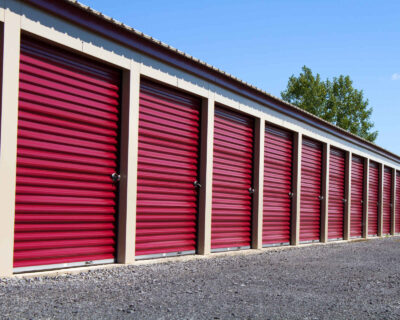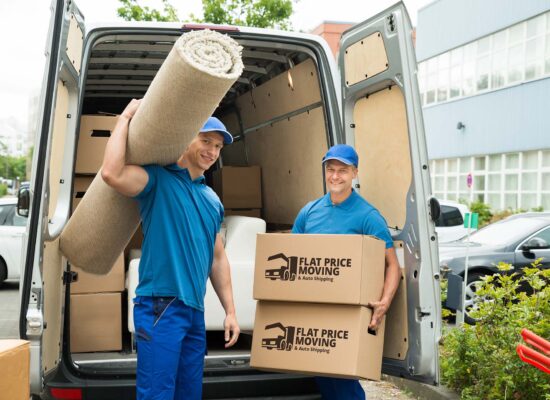Preparing for the Change: Tips for Moving to a Different Climate
Adapting to different weather can be a significant aspect of relocating. The change in weather conditions not only affects your daily routines but also your health and comfort. If you need assistance with moving to a different climate, this blog post provides practical tips to make this transition smoother. Let’s go over essential adjustments, wardrobe changes, and health precautions needed to ensure you settle comfortably and safely into your new environment, regardless of the climatic differences.

Moving to a Different Climate – Is It Possible if You Are Still Living in the US?
The US is home to a diverse range of climates due to its vast geographical expanse. From the sun-soaked beaches of California to the cold climates of the Midwest, the variations are vast. Americans can experience an array of weather conditions without crossing international borders. Thus, it’s not only possible but quite common for individuals to face a significant shift when relocating to a new state. Preparing for such a change requires understanding the specific climatic conditions of the new location and planning accordingly.
Assess the Climate You’re Moving To
It’s essential to understand the new climate as it affects various aspects of life, including health, wardrobe, and outdoor activities. The US encompasses different climate types – humid, arid, tropical, continental, and more. Each type brings unique weather patterns, temperatures, and precipitation levels. It’s essential to learn all about the weather in a place you’re about to live in.
Each transition necessitates different preparations to adapt smoothly. Resources to research average temperatures and weather conditions are readily available online. Websites like The Weather Channel or NOAA (National Oceanic and Atmospheric Administration) provide detailed historical weather data and forecasts. These online platforms offer insights into temperature variations, rainfall, snowfall, and other climatic elements of specific locations.

Adapting Your Wardrobe Is a Crucial Step
One of the initial and critical steps in relocating is adapting your wardrobe to suit the new environmental conditions. When it comes to warm climates, focus on lightweight, breathable, and moisture-wicking fabrics to keep cool. Items like shorts, tank tops, and sun hats become essentials. UV-protective clothing can also be beneficial to shield from intense sun exposure.
In cold climates, the focus shifts to layers and insulation. Thermal wear, heavy jackets, scarves, gloves, and hats are necessary to retain warmth. Invest in quality outerwear that is both insulating and waterproof. Footwear that provides warmth and traction on snowy or icy surfaces is also crucial. For variable climates where weather conditions can change rapidly, layering is key. Having a mix of light and heavy clothing items allows for adaptability. Pack clothes that can be easily layered or removed as temperatures fluctuate.
Tips on Packing Clothing in an Organized Manner
When packing for a move, organization is paramount to ensure easy access and prevent damage to your clothing. Categorize clothes based on their type and suitability. Vacuum-sealed bags can be a savior for bulky items like jackets and sweaters, reducing the space they occupy. Utilize boxes to separate different types of clothing, making unpacking after relocation and locating specific items effortless.
Label the boxes or bags clearly, indicating the content. This aids in prioritizing unpacking, especially if you’re going to a new state with weather vastly different from your current one. Having essential clothing pieces readily accessible can make the initial days in your new home comfortable as you adapt to the new location.

Prepare Your New Home So You Can Easily Adapt to the New Type of Weather
As you relocate, adapting your new apartment or house to the specific weather is essential to ensure comfort and efficiency. In colder climates, checking the insulation, heating systems, and window seals is crucial to retain warmth and reduce energy costs. You might need to upgrade the insulation or install energy-efficient heating solutions to combat the cold.
In warmer regions, focus on efficient cooling systems. Air conditioning units, ceiling fans, and proper ventilation become vital. Consider installing blackout curtains or shades to block intense sunlight, reducing indoor temperatures.
Beyond heating and cooling, some specific appliances and fixtures enhance your home’s adaptability. For instance, a dehumidifier in humid regions can prevent mold growth and enhance air quality, while using a humidifier in arid climates can add moisture to the air, promoting comfort and well-being.

Make Sure Your Car Is Equipped to Handle Shipping to Another Part of the Country
When relocating to another state, considering the adaptability and performance of your vehicle in new environmental conditions is essential. Different climates can have varied impacts on your car, from the engine performance to the durability of its components. It’s crucial to evaluate whether your current vehicle is equipped to handle these changes or if modifications and additional maintenance are required to optimize its performance.
Don’t Underestimate the Impact of the Weather on Vehicle Performance
Climatic conditions significantly influence vehicles. In colder areas, engines can take longer to warm up, battery performance can diminish, and tire pressure can fluctuate. The use of antifreeze and winter tires and ensuring the battery is in optimal condition are paramount.
In hot climates, the vehicle’s cooling system becomes critical to prevent overheating, and UV protection for the paint and interior is also essential. Regardless of the location, understanding the specific impacts of the weather on your vehicle and taking preventative measures ensures optimal performance and longevity.
Hiring an Auto Transport Company Is of Utmost Importance
In the process of relocating, especially across great distances and vastly different climates, hiring a professional auto transport company can be a wise decision. These companies specialize in safe and efficient vehicle transportation, reducing the wear and tear that can occur during long journeys.
Moreover, getting a professional car shipping service means that movers will handle your vehicle with the utmost care, safeguarding against potential damage and ensuring it arrives ready for use in your new location. Don’t forget to check if the auto shipping company is reputable, insured, and experienced to guarantee the safety and timely delivery of your vehicle amidst the myriad of other relocation tasks.

Keep in Mind That Climate Affects Health – Research Which Health Concerns May Arise in Your New Area
The shift to another state can impact your health, necessitating preparation and adaptation. In hotter climates, skincare becomes paramount due to increased sun exposure, necessitating sunblock and hydration practices. Colder climates might exacerbate skin dryness, calling for moisturizing routines.
Allergies can be triggered or intensified by new environmental conditions, pollen types, and air quality. Respiratory issues can also arise or worsen due to temperature changes or air pollutants. To mitigate these impacts, research the prevalent health concerns in the new area. Consult a doctor for personalized advice, medications, or vaccinations as preventive measures. Keep health aids accessible during the initial transitional phase.
Storage Service
Knowing what kind of surprises cross country move may hold, we offer 30 day free storage for belongings at the origin state.
Read moreAuto-Transport
If your first concern is having your vehicle transported safely and efficiently, enclose shipping is the way to go.
Read moreMoving Insurance
Flat Price Moving and Auto Transport Company offers moving insurance to cover potential damages
Read morePrepare Pets for the Change of Scenery
If you’re relocating with pets, you need to keep in mind that they, much like humans, need to acclimate to new conditions. When planning a move to colder climates, consider insulating the pet houses or providing warm bedding. In hotter areas, ensure constant access to shade and water.
Visit a vet to discuss potential health impacts and preventive care based on the specific weather, including parasites or diseases prevalent in the new location. Condition your pets gradually, allowing them to adapt to temperature changes, and monitor their health and behavior closely after the move.
Essential Tips for Relocating Your Plants
Transporting plants requires careful consideration of their adaptability to new climatic conditions. Some plants may not survive drastic temperature changes. Familiarize yourself with the new area’s weather and assess the suitability for your plants. For those that can adapt, prepare them for the move by pruning, conducting pest control, and properly packing them to withstand the journey.
Consider the new home’s light, temperature, and humidity and adjust their placement accordingly. Consider leaving sensitive plants behind with friends or family or donating them locally. You can seek advice from a horticulturist for specialized care and adaptation strategies to enhance their survival chances in the new location.

Hire Professional Movers From a Long-Distance Moving Company to Help You Out
Relocating to a different place entails unique challenges, requiring meticulous planning and execution. Hiring professional movers who are experienced in such transitions can be invaluable. They not only facilitate a smooth process thanks to their moving services but also ensure that all your belongings are handled with extra care. Here are the compelling benefits of relocating with professionals:
- Professional movers are equipped with the skills and knowledge to handle sensitive items, ensuring their safety during transit.
- Access to specialized equipment and packing materials designed to withstand different climatic conditions.
- The option of booking packing services to make your relocation easier.
- The provision of insurance to cover potential damages or losses incurred during the move due to climatic impacts.
- Offering storage facilities to store belongings safely during transitional phases.
- Reducing the relocation stress and labor involved in packing, transporting, and unpacking, especially with weather considerations in play.
- Tailoring the relocation process to address various challenges, ensuring optimal protection for your belongings.
- Assurance that your items are handled with utmost care, mitigating the risk of damage from climatic elements.

Packing and Storage Tips for Your Upcoming Move
When moving to a different state, special attention must be given to packing and storage to protect your belongings from climatic impacts. Determine if you’ll need climate-controlled storage, especially for items sensitive to temperature or humidity fluctuations like artwork, electronics, or antique furniture. One of the best packing tips says to use insulating materials and moisture absorbers to provide an extra layer of protection.
Packing materials should cater to the specific climate – for instance, use airtight packing for humid areas to prevent mold and mildew. Always label boxes containing sensitive items to ensure they receive special care during the move and immediate attention upon arrival to mitigate climate-induced damage.

Contact Flat Price Auto Transport and Moving and Relocate Seamlessly to Another Part of the Country
When embarking on a long-distance relocation, choosing the right partners is pivotal to ensuring a smooth transition. Flat Price Auto Transport and Moving stands out as a trusted name in the relocation industry. Our team of long-distance movers specializes in handling every detail with precision, ensuring your belongings reach their destination undamaged. As a proficient car shipping company, we also guarantee the safe and timely transportation of your vehicle across vast distances.
If you’re seeking reliable cross-country movers to provide comprehensive long-distance moving services, our expertise is unparalleled. We understand the intricacies involved in relocating to a different part of the country, and our tailored services ensure every aspect of your move is managed adeptly. For a seamless move to any climate, contact us and hire our well-equipped and experienced team.
FAQ
How Far in Advance Should I Start Preparing for a Move to a Different Climate?
Preparation for a move to a different climate should ideally begin at least two to three months in advance. This allows adequate time for researching the climate, making necessary adjustments to your belongings, and addressing the specific needs of family members and pets. Early planning ensures a smooth transition and reduces the stress associated with last-minute relocation preparations
What's the Best Way to Acclimate Pets to a New Climate?
Acclimating pets involves a gradual introduction to the environment. Start by adjusting your home’s temperature to simulate the climate. Visit a vet for specific advice on diet, grooming, and healthcare adaptations necessary for the new weather conditions. On arrival, allow pets to explore and adapt at their pace, monitor their comfort, and make necessary adjustments to ensure their well-being.
Are There Any Foods or Supplements That Can Help Me Adapt to a New Climate?
Dietary adjustments can aid in adapting to climates. In hotter climates, staying hydrated and consuming foods with high water content can be beneficial. In colder areas, foods that provide energy and warmth, like those rich in carbohydrates and fats, may be helpful. Consult a nutritionist for personalized dietary recommendations and consider taking supplements to bolster immunity and overall health during the transition.
How Do I Find Out About Any Climate-Related Restrictions or Requirements for My New Location?
Research online or contact the local municipal office or community centers in the new location to gather information on specific climate-related restrictions or requirements. They can provide insights into building codes, restrictions on outdoor activities, or specific regulations related to the local climate.
Can I Bring My Outdoor Furniture to a Different Climate?
The adaptability of outdoor furniture to a climate depends on the material and build quality. Assess the durability of your furniture against the specific weather conditions of the new location. You might need to treat or modify the furniture to enhance its resistance to the climate’s elements or consider buying different pieces that are well-suited for the prevailing weather conditions.








